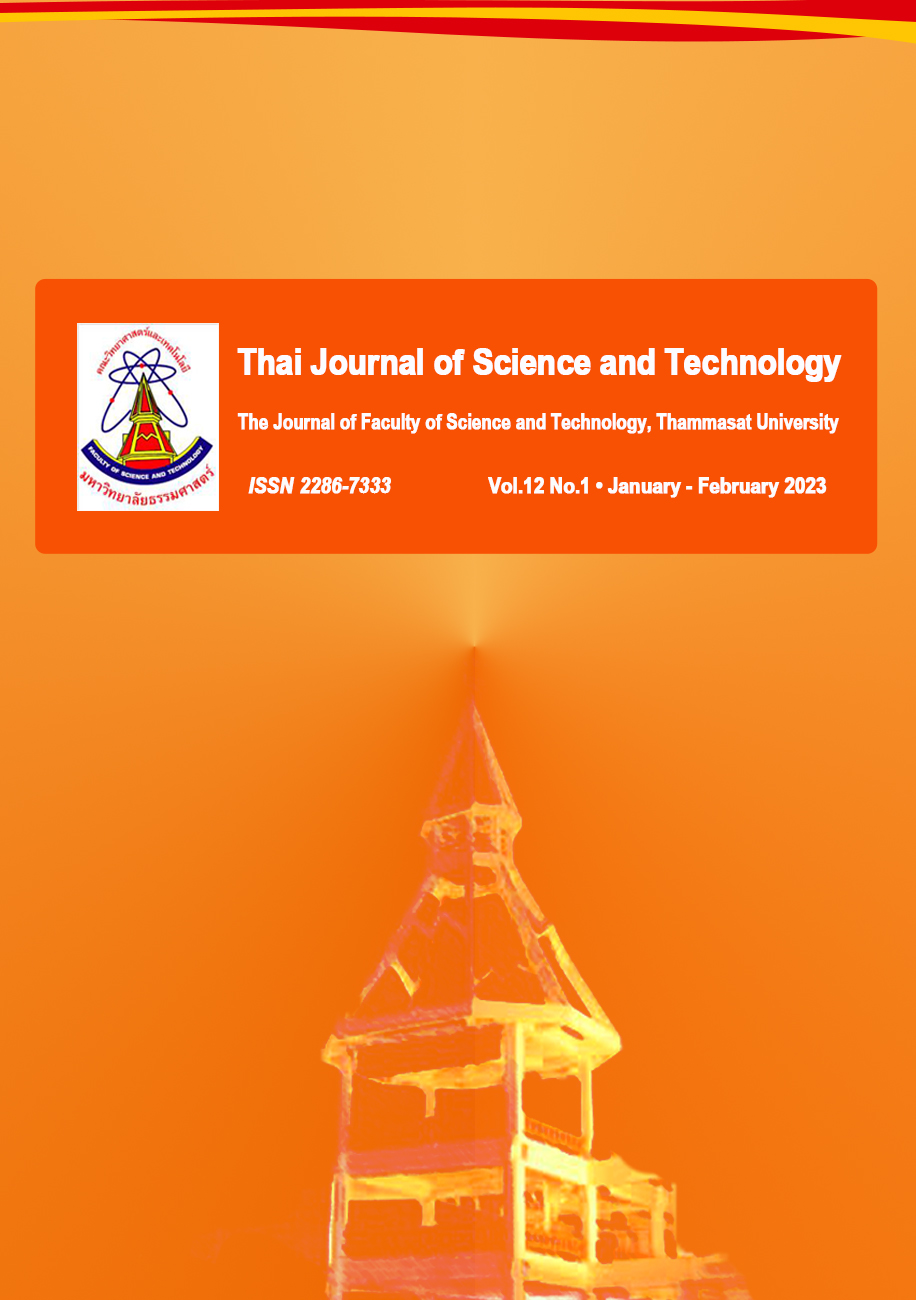สมการไดโอแฟนไทน์ p^x+(p+12)^y=z^2 เมื่อ p และ p+12 เป็นจำนวนเฉพาะ
Main Article Content
บทคัดย่อ
สมการไดโอแฟนไทน์ p^x+(p+12)^y=z^2 เมื่อ p และ p+12 เป็นจำนวนเฉพาะ ไม่มีผลเฉลยที่เป็นจำนวนเต็มบวก ถ้า p ไม่เท่ากับ 11
Article Details

อนุญาตภายใต้เงื่อนไข Creative Commons Attribution-NonCommercial-NoDerivatives 4.0 International License.
บทความที่ได้รับการตีพิมพ์เป็นลิขสิทธิ์ของคณะวิทยาศาสตร์และเทคโนโลยี มหาวิทยาลัยธรรมศาสตร์ ข้อความที่ปรากฏในแต่ละเรื่องของวารสารเล่มนี้เป็นเพียงความเห็นส่วนตัวของผู้เขียน ไม่มีความเกี่ยวข้องกับคณะวิทยาศาสตร์และเทคโนโลยี หรือคณาจารย์ท่านอื่นในมหาวิทยาลัยธรรมศาสตร์ ผู้เขียนต้องยืนยันว่าความรับผิดชอบต่อทุกข้อความที่นำเสนอไว้ในบทความของตน หากมีข้อผิดพลาดหรือความไม่ถูกต้องใด ๆ
เอกสารอ้างอิง
Acu, D. (2007). On a Diophantine equation. General Mathematics, 15, 145-148.
Sroysang, B. (2012). On the Diophantine equation. International Journal of Pure and Applied Mathematics, 81, 605-608.
Sroysang, B. (2013). More on the Diophantine equation. International Journal of Pure and Applied Mathematics, 84, 133-137.
Sroysang, B. (2014). On two Diophantine equations. International Journal of Pure and Applied Mathematics, 92(1), 113-116.
Burshtein, N. (2018). All the solutions of the Diophantine Equation when ( p, q ) are primes and ( a, b ). Annals of Pure and Applied Mathematics, 16(1), 241-244.
Burshtein, N. (2018). Solutions of the Diophantine Equation when ( p, q ) are primes and ( a, b ). Annals of Pure and Applied Mathematics, 17(1), 101-106.
de Oliveira, F. N. (2018). On the Solvability of the Diophantine Equation when ( p ) and ( q ) are primes. Annals of Pure and Applied Mathematics, 18(1), 9-13.


